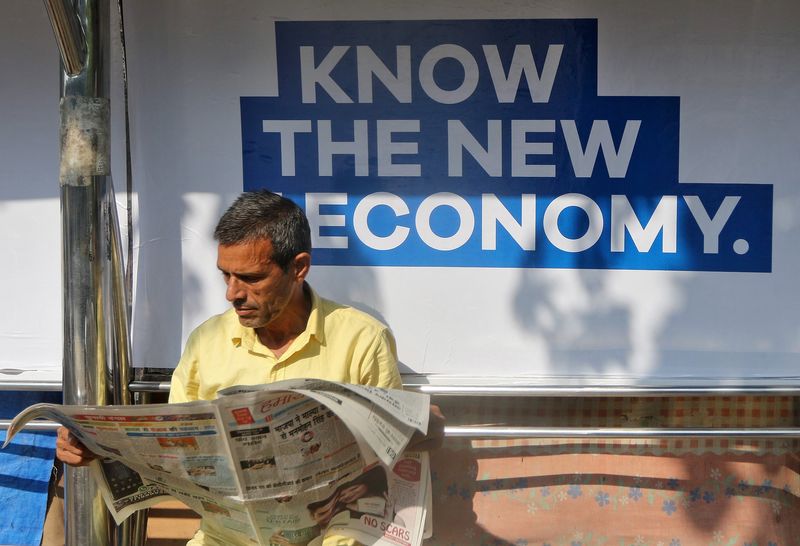By Shubham Batra and Nikunj Ohri
NEW DELHI (Reuters) - India forecast economic growth of 6% to 6.8% in the 2023/24 fiscal year, slowing from the 7% growth projected for the current year ending on March 31, as a global slowdown is likely to hurt exports.
The finance ministry's released its annual Economic Survey and Finance Minister Nirmala Sitharaman presented it to parliament on Tuesday, a day before she is set to unveil the government's budget for the coming fiscal year.
The economic growth forecast for 2023/24 is higher than the International Monetary Fund's projection of 6.1%, as the finance ministry expects the global weakness will be partially offset by strong domestic demand.
The report, prepared by Chief Economic Adviser V Anantha Nageswaran, said its baseline scenario was for 6.5% growth in 2023/24, which would still make India one of the fastest growing economies.
"The actual outcome for real GDP growth will probably lie in the range of 6.0% to 6.8%, depending on the trajectory of economic and political developments globally," it said.
For India, on balance, a modest slowdown in global growth would be beneficial as it would help bring down commodity prices and ease inflation concerns, Nageswaran told a news briefing after the release of the survey.
GRAPHIC: INDIA REAL GDP GROWTH FORECAST- https://www.reuters.com/graphics/INDIA-ECONOMY/GDP/akpeqmzznpr/india-real-gdp-growth.jpg
India's economy has rebounded since the COVID-19 pandemic. But the Russia-Ukraine conflict has triggered inflationary pressures and prompted central banks, including India's, to reverse ultra-loose monetary policy adopted during the pandemic.
The survey said inflation was not high enough to deter private consumption nor low enough to weaken investment, even though it remained above the central bank's target range of 2% to 6% through much of 2022/23.
Consumer prices in December were 5.72% higher than a year earlier.
Demand in the economy will remain "brisk" in 2023/24 as "a vigorous credit disbursal and capital investment cycle is expected to unfold in India with the strengthening of the balance sheets of the corporate and banking sectors," the survey said.
However, this could mean that the current account deficit might stay high, because a strong domestic economy would support imports while exports were expected to ease due to weakness in foreign markets.
India's current account deficit was 4.4% of GDP in the July-September quarter, up from 2.2% in the April-June quarter and sharply was sharply from 1.3% a year earlier as a result of rising prices for imported fuel and commoditiess and a weak rupee.
In the medium term, the Indian economy can grow by an average of 6.5%, the survey said. India’s potential GDP growth could rise to 7-8% per annum in the medium term if economic reforms are carried out, it added.
Improved public digital infrastructure and a turn in the financial cycle, with the deleveraging of banks and corporate balancesheets, will add to India's potential growth, according to Nageswaran.
"This will add 50-100 basis points to India's trend growth over the medium term above the 6% trend assumed by many forecasters," he said.
GRAPHIC: Overestimating growth- https://www.reuters.com/graphics/INDIA-BUDGET/SURVEY/zdvxdnoqdvx/chart.png
The pandemic years led to a surge in India's general government debt, prompting the government to undertake fiscal consolidation.

The government is on track to meet its fiscal deficit target of 6.4% for 2022/23 as well as its medium-term fiscal goal, the survey said. In the budget for 2022/23, the government had planned to bring down the fiscal deficit to 4.5% by 2025/26.
Growth led by capital expenditure will help India keep India's growth-interest rate differential positive and keep government debt sustainable, the survey said.
(Additional reporting Aftab Ahmed; Additional reporting by Nigam Prusty; Editing by Tom Hogue, Bradley Perrett and Simon Cameron-Moore)